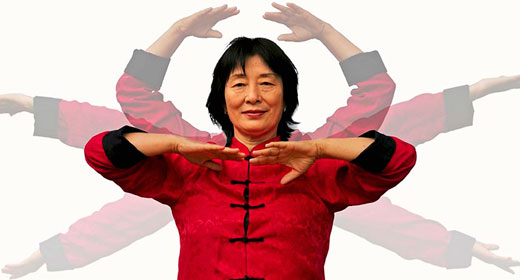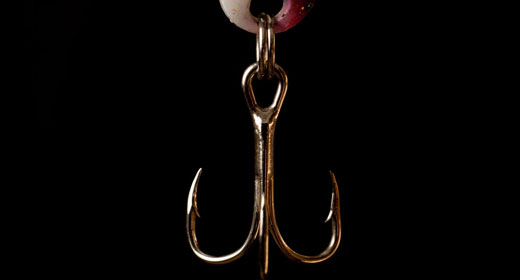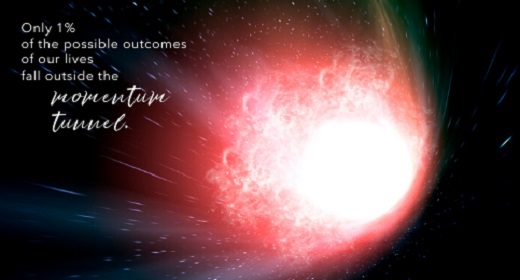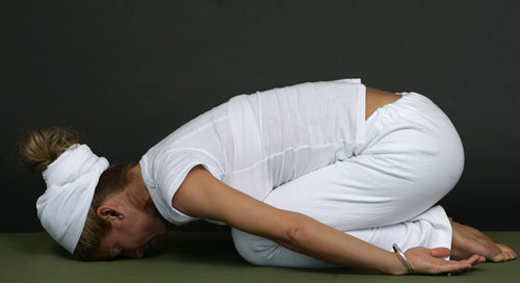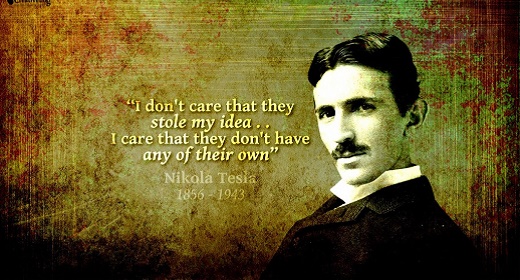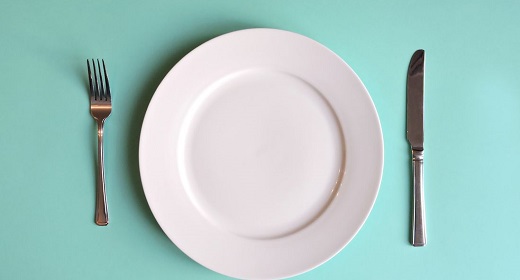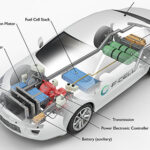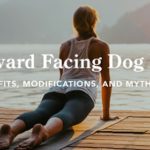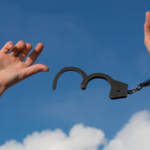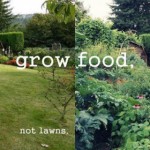Dr. Dean Ornish: So, in the research that we do, we have Eat Well, Move More, Stress Less, Love More but the part the people have the most surprise about, is the Love More part.
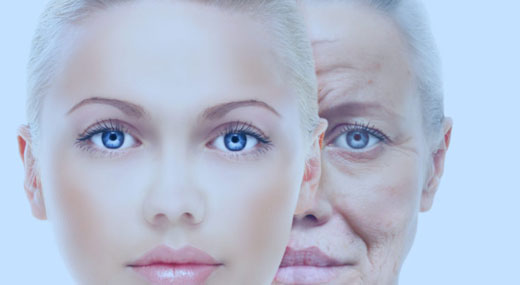
What is that about? Is that about sex? Well, it can be. But it’s so much broader than that. Love in the sense of, anything that brings us together is healing, as we talked about earlier. You could love your kids, your parents, a friend, a dog… anything that connects us.
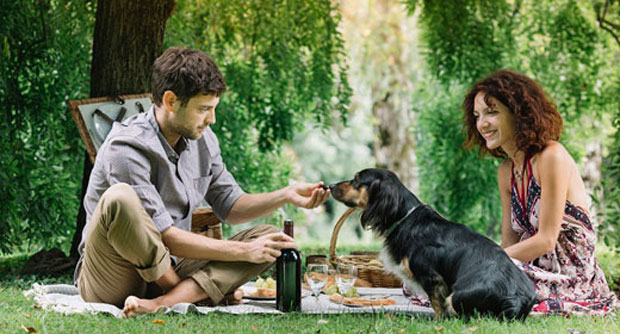
In our support groups, which is part of our program… Medi-Care is now paying for… Most insurance companies… Who would have thought Medi-Care would be paying for these things? That was a 16-year process, which we’ll come back to. The support groups are designed… not to help them stay on the diet or exercise, as important as those are, but to create a safe environment that allows us to let down our emotional defenses and talk openly and authentically about what’s really going on in our lives. Without fear that someone is going to judge us, reject us, criticize us, make us feel bad. 50… 60 years ago, we had that naturally. Most people had a community. A neighborhood. They had two or three generations of people living together. They had an extended family that they saw regularly. They had a job that felt secure. They had a church, or a synagogue that they congregated at. And many people don’t have any of those things now.
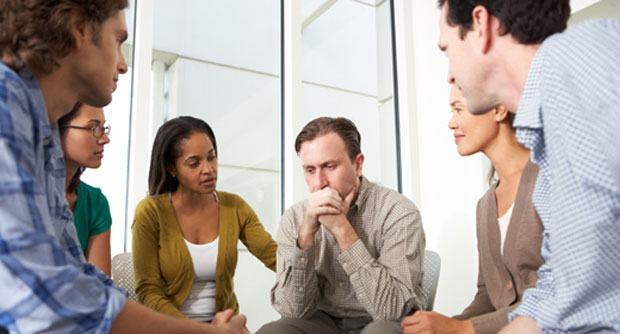
Donna Quesada: Let me take one minute if I may, just to ground us. So that we put this in a context of your book. Part of your mission in this book is to present the four different aspects of lifestyle which heal us… which bring us to a state of wellbeing. Would it be fair to say that? And we are getting into that part of it that has to do with living. Those parts are Eat Well, Move More, Stress Less and Love More. And as you say, people are surprised that you would include this dimension. And to continue to backpedal for just a moment… We are talking about healing. It seems like it’s not possible to heal without looking at all these dimensions at once. We can’t really separate these aspects of our lives. Would that be fair to say?
DEAN: That’s exactly right. And what happens when you grow up in a neighborhood with two or three generations of people is, they see you. They don’t just see your Facebook profile. The one study I quote in my book is, the more time you spend on Facebook, the more depressed you are. It’s not authentic. It looks like everyone lives this perfect life. There I am in front of the Eiffel Tower. There I am doing this wonderful thing. They don’t talk about their demons. But if you grow up in a family of two or three generations of people, they know you. It’s like an avatar. I see you. An African proverb. I see all of you. Your dark side as well as the light. And I’m still there for you. And there is something really primal about being seen, warts and all, and yet they are still there for you. So, in the support groups, that’s what we try to recreate. We ask them to let down their emotional defenses and talk openly and authentically about what’s going on in their lives without fear that someone is going to judge them or reject them. Now, I think our unique contribution, to put this in a larger context, that you mention, is that we’ve used now for over forty years, these very expensive, high-tech scientific measures to prove how effective these very simple, low-tech interventions can be. Eat Well, Move More, Stress Less, Love More. We talked about Love More. The other reason Love More is important, is that information is not sufficient to motivate most people to make healthy choices in their lives. If it were, nobody would smoke. It’s not like I tell them, “Do you know smoking is bad for you?” Everyone knows it’s bad for you. It’s on every pack of cigarettes. So, then, the question really becomes… and this is what I learned from the Swami… What is the cause? Why do you smoke? Why do you over eat? Why do you drink too much? Why do you abuse substances, or Opioids? Or, why do you work all the time? Why do you play too many video games? Whatever. I asked the patients in our studies, “These behaviors seem so mal-adaptive. Why do you do them?” They’d say, “They are not mal-adaptive. They help us deal with our pain… our loneliness or depression.”
DONNA: Comfort.
DEAN: That’s right. They numb out that pain. That’s the real epidemic in our culture. Because in part… because of the breakdown of these social networks… the real epidemic is loneliness and depression. More prescriptions are written for anti-depressants than just about anything else besides cholesterol. The patients in our study would say things like, “I’ve got twenty friends in this pack of cigarettes and they are always there for me and nobody else is. Take away my twenty friends… what are you going to give me?” Or, food fills that void. A well-known food writer said, “That coats my nerves and numbs the pain.” Or, alcohol, or, opioids numb the pain. Or, video games numb the pain. Or, working all the time is a more socially acceptable way of distancing yourself from that pain.
DONNA: This isn’t just romantic love. We are talking about community… friendship. A sense of belonging.
DEAN: It can be romantic love, but it’s not limited to that. And we can talk about my relationship with my true love. We’ll come back to that. Instead of using these behaviors to numb the pain… To say, “wait a minute… if I can rediscover inner peace, and joy, and wellbeing, then I know I can go out in the world and accomplish even more, without getting sick and stressed in the process.” And I’m much more likely to make lifestyle choices that are life enhancing, rather than self-destructive.
And by the way, before we get off topic, what I’ve learned is that this is the most romantic and fun way to live. I was brought up in the late sixties. Free love. And, the more people you have sex with, the more fun it is. When I decided not to kill myself, I said “look, I don’t know what’s true. I don’t know what’s real. I’m going to lead a really messy life. If it’s not going to kill me or hurt me permanently, or someone else, I’m going to try and do some of that. ‘Cause I need to know. When you come that close to death, you realize that when most people are on their deathbed, they don’t regret what they did, they generally regret what they didn’t do. Because if you do something and it turns out to be a mistake, you learn something really powerful. There’s a lot of wisdom that comes from making mistakes. I have a lot of wisdom because I made so many mistakes in my life and lead such a messy life. Things that would probably surprise most people because I just needed to know.
And one of the things I learned is when I got into a committed, monogamous relationship with my true love… with Anne, who I co-authored this book with. There’s an Indian saying from a hundred years ago, from a Yogi named Rama-Krishna, “you can dig a lot of shallow wells and never reach water, or dig one deep one and reach the well spring.” So, I feel with Ann, instead of having the same kind of erotic experiences with other people, I’m having infinitely variable erotic experiences with the same person. Because you can only be intimate with someone to the degree you can open your heart and be vulnerable to them. And you can only do that to the degree that you feel safe… if you are in a committed monogamous relationship and you feel safe.
By the way, I’m learning that safety is a relative concept. The longer we’re together and the more we trust each other, the more the heart opens. And the more your heart opens, the more intimate it becomes. And the more intimate it becomes, the more erotic it becomes. I never knew that. So, it’s incredibly erotic and fun and pleasurable to be with this one person.
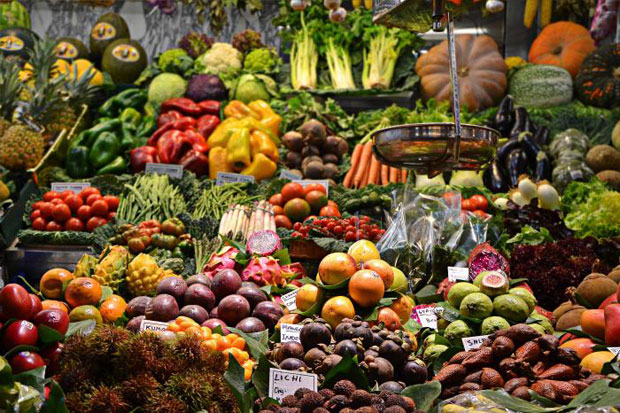
And the same with food. If I say I’m only going to eat certain plant based whole foods, is that deprivation? It’s easy to make a case for Am I going to live longer? But in fact, if what you gain is so much more than you give up, then it’s not deprivation. You start to connect the dots between what you eat and how you feel. The underlying biological mechanisms are so dynamic. Most people feel so much better so quickly, it reframes the reasons for making these decisions. From fear of dying, or fear of something bad happening, which is not sustainable to joy and love and feeling good… And so, in our Medicare covered projects, we are training hospitals and clinics and clinician groups around the country.
If you go to our website at Ornish.com, there’s about 35 sites we’ve trained so far, but we’re still just getting warmed up here. And our program is nine weeks long. Its 72 hours. People come twice a week for four hours at a time. It’s a lot. Each time they come, they get an hour of exercise. An hour of meditation and yoga. Who would have thought Medicare would be paying for that? And our support group and a lecture… They do that twice a week for nine weeks, for a total of 72 hours. And 94% of ours are completed. And a year later, 85 to 95 percent of people are still following the program. How can that be? Most people aren’t even taking their cholesterol drugs after a few months. The reason is, what you gain is so much better than what you give up. That these underlying biological mechanisms are so dynamic… You can feel better, really quickly. You can feel worse really quickly. That’s when you make big changes; you really do feel better quickly.
DONNA: Is it feeling bad that serves as the motivation for most people?
DEAN: It can be, but then again, I wasn’t trained as a doctor to show people how suffering can serve as a doorway to transformation. I was taught, when people are suffering… to numb it or kill it. Literally. Figuratively, bypass the problem. Part of the function of pain… I remember the swami I was studying with for so many years… I’d say, “I’m hurting.” He’d say, “good.” I’d say, “No, it’s terrible.” He’d say, “it’s good.” I’d say, “why?” He’d say, “when you get tired of banging your head against the wall, you’ll stop doing it.”
We have so much more control over what happens with us. We found for the first time, that we could reverse severe heart disease. We found out that this same life style could reverse high blood pressure, high cholesterol, type 2 diabetes… You know, when they get these drugs and they say, “Hey doctor, how long do I have to take these?” He usually says, “Forever!”
When I lecture, I had this cartoon drawn forty years ago of a doctor who is busily mopping up the floor when the sink is overflowing. “How long do I have to mop up the floor?” “Forever!” Why don’t we just turn off the faucet? And our bodies often have this remarkable capacity to begin healing. And, much more quickly than we once realized, if we can treat the underlying cause and turn off the faucet. And so, then under their doctor’s care, many people… most people can get off these medications that they were told would lower their blood pressure, their blood sugars, their cholesterol levels… that they were told they’d have to take the rest of their lives. We found that these life style changes can reverse cases of early stage prostate cancer. And if it works for prostate cancer, it will likely work for breast cancer. We did a study published with Craig Venter, who was the first to decode the human genome… These same lifestyle changes could change your genes.
DONNA: That’s the most fascinating part. I was reading that in preparing for this interview. Could you speak to that for a moment? Because it sounds fantastic! You mean, I can actually change my genetic coding?
DEAN: You can. You aren’t actually changing the genes, but you’re changing the switches that turn those genes off and on. So, if you can turn off a gene that causes breast or colon cancer, functionally, you are changing your gene. And we found that in over 500 genes were changes in only three months. Up regulating the genes that keep us healthy. Down regulating the genes that make us sick.
DONNA: What about people who are watching… and they feel overwhelmed? Where do I start? What is the proper motivation for these people? What does it take to change your lifestyle?
DEAN: It takes a desire to do it. That often comes out of pain or disease. It doesn’t have to be that way, but for many people it is. We found these lifestyle changes could reverse all of these different conditions. We did a study with Elizabeth Blackburn, who won the Noble Prize for her pioneer work with telomeres. Telomeres are the ends of our chromosomes that regulate how long we live. They’re like the plastic tips of a DNA Strand that keep your genes from unraveling. Just like the plastic tip that keeps your shoelace from unraveling. Your telomeres keep you chromosomes from unraveling. And as they replicate over time, our telomeres get shorter. And as our telomeres get shorter, our lives get shortened, and the risk of premature death for all chronic disease goes up. It had been shown that stress could shorten your telomeres… and bad diet and smoking. We found for the first time that we can lengthen them.
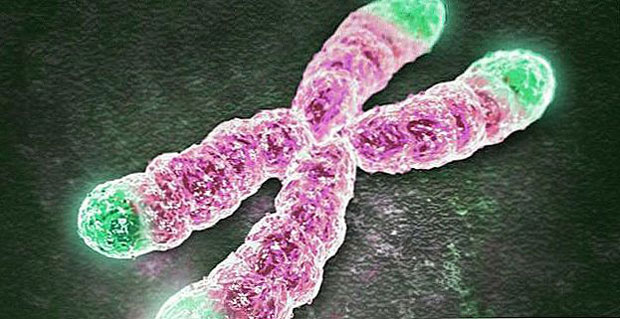
She has done a wonderful study, where she worked with women who were carriers of kids with autism and found out the more stressed they were, the shorter their telomeres were. And when they compared the high stress and the low stress women, they found that their telomeres were so short from the stress, that it shortened their lifespan by nine to 17 years. A huge amount. But what was even more interesting to me was that it wasn’t an objective measure of stress; the women’s perception of it was how it affected their telomeres. You could have two women in similar life situations, but one was coping with it. They were exercising, they were eating well, stressing less, loving more. And you can prevent and buffer the effects of stress. You could be in the same environment and not have it shorten your telomeres. We found that you can actually lengthen them. And when the Lancet published this, they sent out a press release. They called it “reversing aging on a cellular level.” We are doing the first randomized trial to see if we can reverse Alzheimer’s. And I think we are at a place with Alzheimer’s, very similar to where we were forty years ago with heart disease.
And so, I present this kind of radical unifying theory in this new book. The UnDo It! book. And it goes something like this… That I was trained like most doctors to view heart disease and Diabetes and prostate cancer and Alzheimer’s, and so on, as very different from each other… different diseases… different diagnoses… different treatments. But what I learned, and what I realized is that all these forty years of doing research… it wasn’t like we had one set of lifestyle recommendations for reversing heart disease, and another one for prostate cancer, or Diabetes, or high blood pressure, etc. It’s the same for all of them. And the reason is that with all this talk about personalized medicine… the reason it’s the same lifestyle changes that can reverse or even prevent, or help prevent all of these different conditions… it’s that there aren’t different diseases. They are the same disease masquerading and manifesting in different disguises. Kind of like how we are manifesting in different disguises. I’d never thought about it like that.
DONNA: What do they all have in common?
DEAN: What do they all have in common? That’s a really good question. They all share the same underlying biological mechanisms. Things like chronic inflammation. Oxidative stress. The 100 Trillion cells in our gut. Over stimulation of the central nervous system, etc. And each one of these mechanisms in turn, is directly influenced by what we eat. How we respond to stress. How much exercise we get. And how much love and support we have. And because these underlying mechanisms are so dynamic when you make these changes, most people feel so much better,so quickly, in ways that really matter to them.
DONNA: That’s inspiration to continue.
DEAN: Then you are more likely to have lifestyle changes that are life enhancing instead of self-destruction. Not just to prevent something years down the road. 90 instead of 89… that’s not really motivating. But, because what you gain is so much more than what you give up. And I use an example in the book… the first chapter in our new UnDo It! book… from a film called Game Changers that was made by James Cameron, the legendary film maker. He did Avatar and Titanic and Terminator and all those great movies. He became a vegan—he and his wife Suzie, about ten years ago. Because in addition to being a film maker, he is an explorer. When he learned that more Global Warming was caused by eating livestock than all forms of transportation combined, he said, “I’m going to eat a plant-based diet. That is where I can make a difference.” And he had so much energy by doing that. Now he is filming Avatar 2, 3, and 4 at the same time. I got to visit the set. It’s amazing. He’s a fireball of energy. But he made another film that is going to come out in a few months, called Game Changers,with Luis Godoy, who got an Academy Award for his first film, The Cove, which was on the dolphin slaughter in Japan. The biggest misconception that most people have about eating a vegan or a plant-based diet that is low in fat and sugar, is that you are a wimp and you don’t get enough protein. So, this film is all these elite athletes who raise their game… and mixed-martial artists national champions… and heavy weight boxing champions.
DONNA: The quarterback Tom Brady is a vegan.
DEAN: Exactly. Or, Rich Roll. Probably the fittest guy in the world. But there is this great scene in the movie, where they have these three elite athletes in their mid-twenties. And they give them a single meat-based meal. And it’s organic beef. And then they had a urologist who measured the frequency and hardness of the erections they had at night when they slept. Because it’s a normal human function that guys have erections. It keeps all the plumbing going. They did the same thing the next night with a plant-based meal. And after one meal, they found they had 300% to 500% more frequent erections after the plant-based meal. And were 10% to 15% harder than the plant-based meal.
DONNA: I can’t help but wonder about the urologist that has that job!
DEAN: Well, it shows how dynamic these mechanisms are. Even in your 20’s, this is a system wide issue. It’s not just your sexual organs. It’s that your brain gets more blood when you eat a meal that is healthy. You have more energy. You can actually grow more brain neurons. Your brain gets measurably bigger. Your skin gets more blood. I mean, I’m 96. I look pretty good! You look about 10 or 20 years younger.
Read and Watch Part I Here: Awaken Interviews Dr. Dean Ornish #2 Pt 1 – Awareness Is the First Step of Healing
Read and Watch Part III Here: Awaken Interviews Dr. Dean Ornish #2 Pt 3 – The More You Change, The Better You Feel
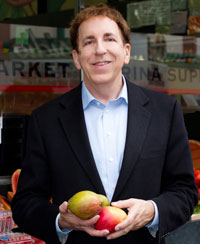 Dr. Dean Ornish, M.D., is the founder and president of the nonprofit Preventive Medicine Research Institute, clinical professor of medicine at the University of California, San Francisco, and the author of six books, all national bestsellers. He has received numerous honors, including the Outstanding Young Alumnus Award from the University of Texas, Austin, and the National Public Health Hero Award from the University of California, Berkeley. Dr. Ornish was recognized as a “TIME 100 Innovator;” by Life magazine as “one of the 50 most influential members of his generation;” by People magazine as “one of the most interesting people of the year;” and by Forbes magazine as “one of the world’s seven most powerful teachers.”
Dr. Dean Ornish, M.D., is the founder and president of the nonprofit Preventive Medicine Research Institute, clinical professor of medicine at the University of California, San Francisco, and the author of six books, all national bestsellers. He has received numerous honors, including the Outstanding Young Alumnus Award from the University of Texas, Austin, and the National Public Health Hero Award from the University of California, Berkeley. Dr. Ornish was recognized as a “TIME 100 Innovator;” by Life magazine as “one of the 50 most influential members of his generation;” by People magazine as “one of the most interesting people of the year;” and by Forbes magazine as “one of the world’s seven most powerful teachers.”

